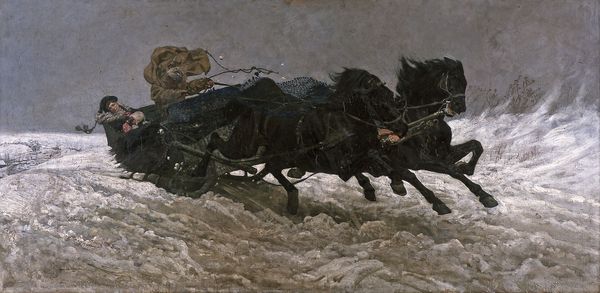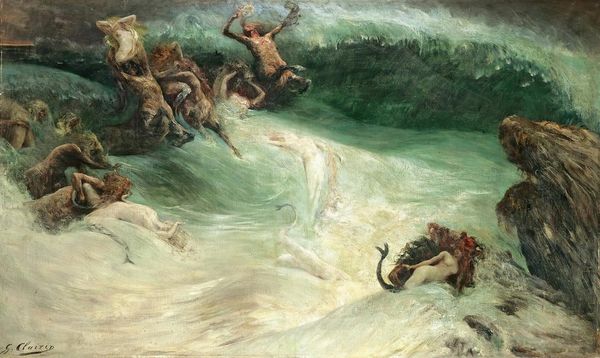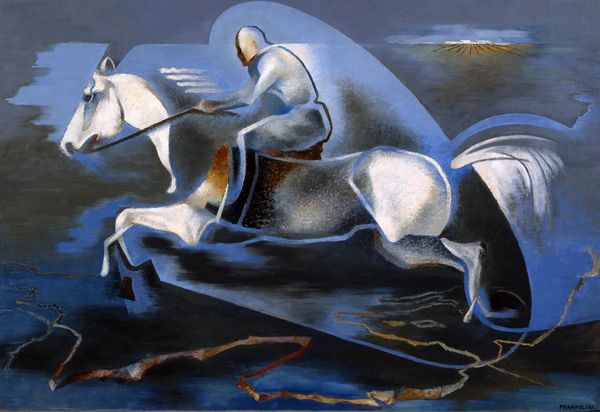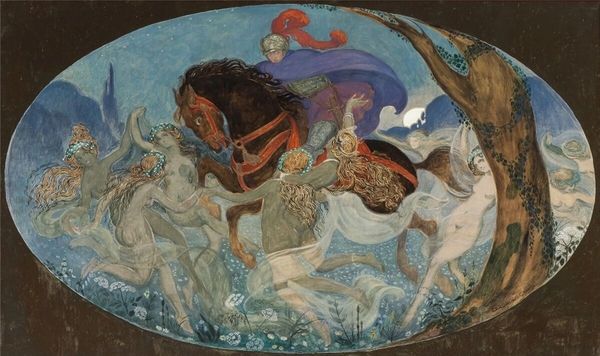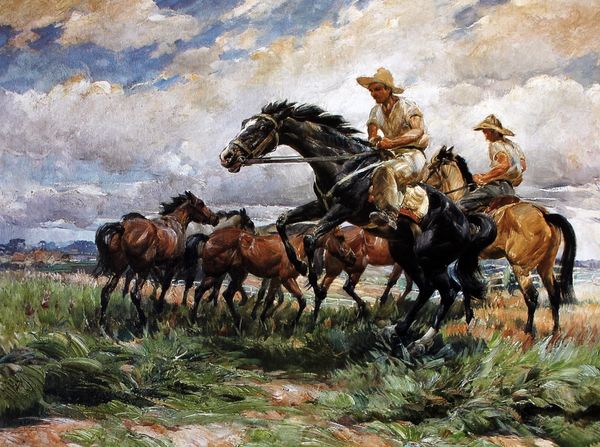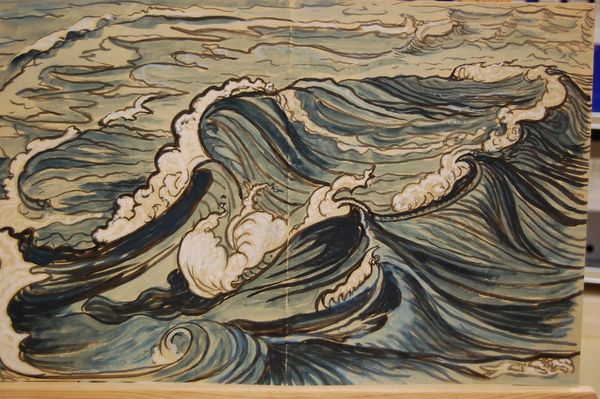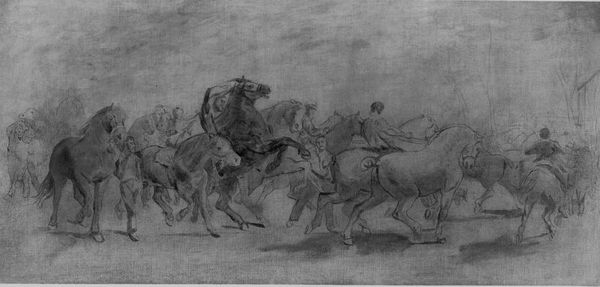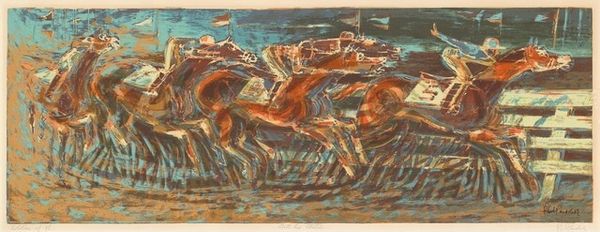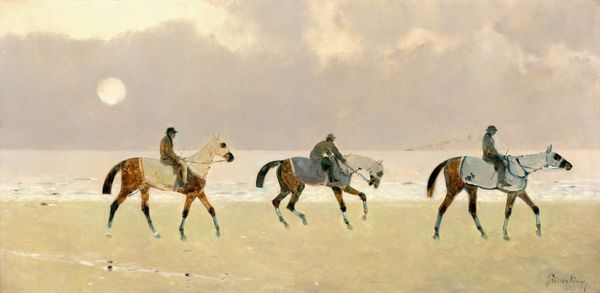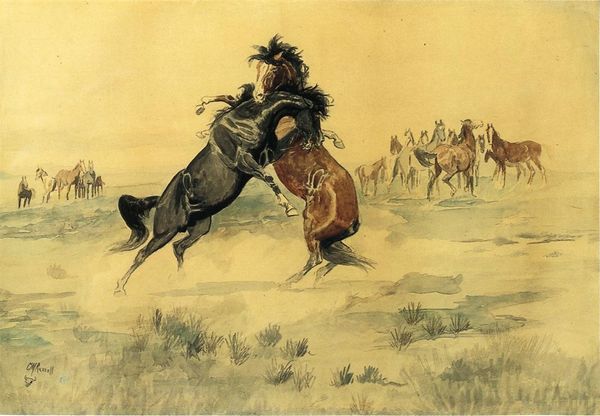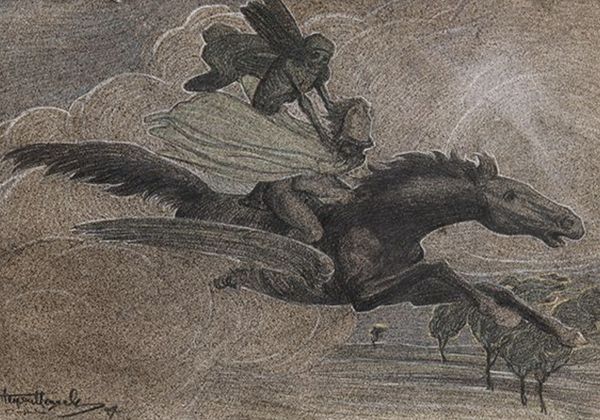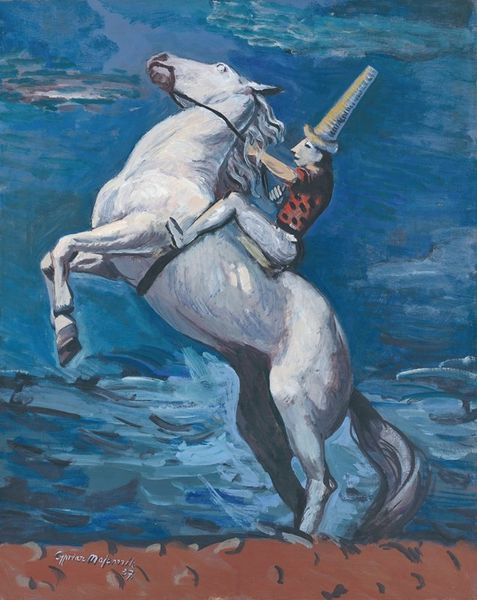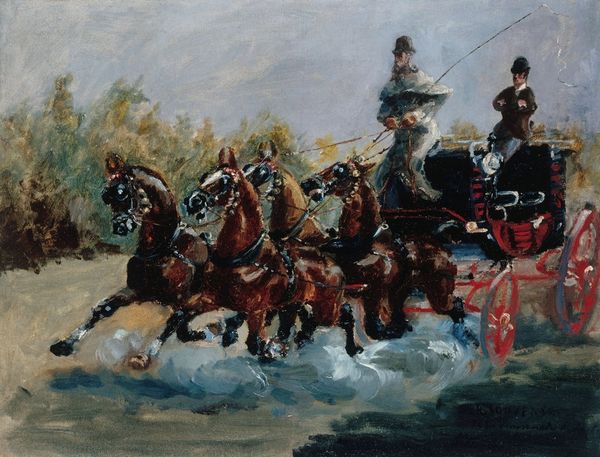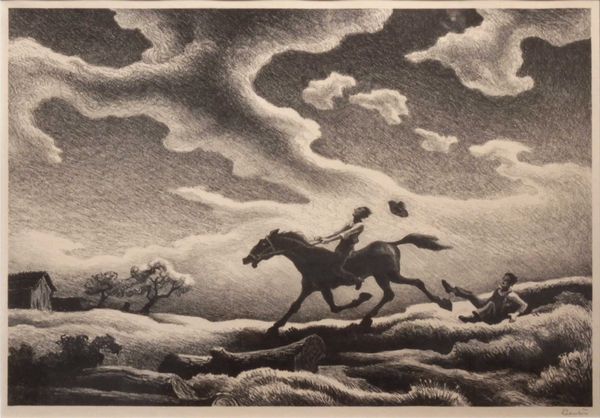
Copyright: Public domain
Editor: So, this is Walter Crane's "Neptune's Horses," painted in 1893. It's a watercolor piece, and I'm struck by how turbulent and energetic it feels. The horses emerging from the waves… it’s quite dramatic. What do you see in this work, and how do you interpret it? Curator: Beyond the immediate drama, I see a powerful statement about Victorian anxieties surrounding industrialization and societal upheaval. The raw, untamed power of Neptune and his horses can be read as a counterpoint to the rigid social structures and perceived dehumanization of the era. Editor: That's interesting. I was mostly focused on the mythology, but the context makes it much deeper. The waves, they almost feel like a force of nature pushing against something... Curator: Precisely. Consider Crane's involvement with the Arts and Crafts movement, a reaction against industrial production. How might this inform his depiction of Neptune, a god embodying primal, unbridled creativity? Do you think this is in line with other romantic interpretations? Editor: Maybe. The romantics glorified nature and ancient myths, so Neptune is very apt, but this angle is about a particular time in history. The movement to recapture craftsmanship makes me think about the role of art, too...as resistance. Curator: Absolutely. Crane's choice of watercolor, a medium associated with spontaneity and fluidity, further underscores this rejection of the rigid, mechanical world. The painting prompts us to consider the power of myth and the natural world as spaces of resistance against oppressive systems. Editor: I had no idea so much could be read from this scene! Curator: And it doesn't stop there! It serves as a vital touchstone, sparking dialogue between art history and contemporary socio-political realities, allowing for meaningful discussions around cultural identity, power dynamics, and potential pathways toward collective liberation. Editor: That's fascinating. I'll definitely be looking at art differently now. Thank you!
Comments
No comments
Be the first to comment and join the conversation on the ultimate creative platform.
